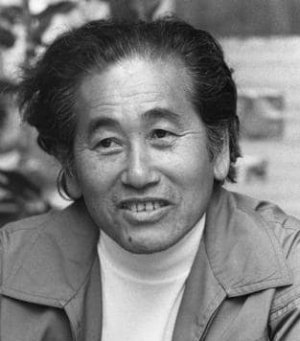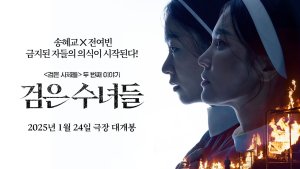Horikawa Hiromichi
- Name: Horikawa Hiromichi
- Native name: 堀川弘通
- Nationality: Japanese
- Gender: Male
- Born: November 28, 1916
- Died: September 5, 2012
Akira Kurosawa’s assistant on numerous films including Ikiru (1952) and Seven Samurai (Shichinin no samurai, 1954), Horikawa has never achieved his mentor’s fame. Kurosawa himself scripted his directorial debut, A Story of Fast-Growing Weeds (Asunaro monogatari, 1955), about an adolescent and the first three women in his life. A concern with youthful experience was also visible in Horikawa’s second and third films, Summer Eclipse (Nisshoku no natsu, 1956), a taiyōzoku (“sun tribe”) film based on a Shintarō Ishihara novel, and The Last Day of Oishi (“Genroku Chūshingura: Ōishi saigo no ichinichi” yori: Koto no tsume, 1957), a reworking of the Chūshingura story that focused particularly on the youngest of the participating ronin and his fiancée. Another retelling of a classical Japanese story was the Chikamatsu adaptation Oil Hell Murder (Onnagoroshi abura jigoku, 1957), but Horikawa returned to contemporary subject matter with The Naked General (Hadaka no taishō, 1958), a portrait of mentally handicapped collage artist Kiyoshi Yamashita. In this darkly humorous account of a stubborn non-conformist, Horikawa touched for the first time on the subject of World War II, ironically showing how the artist’s apparent madness enabled him to escape the draft. The melodrama Eternity of Love (Wakarete ikiru toki mo, 1961), tracing a woman’s unhappy marriages and affairs, also unfolded against a wartime backdrop.
During the sixties, Horikawa made several thrillers: the socially conscious aspects of these films suggest the continuing influence of Kurosawa while also evoking Masaki Kobayashi, whose regular actor Tatsuya Nakadai appeared in TheBlueBeast (Aoiyajū, 1960) and PressureofGuilt (Shirotokuro, 1963). The former charted the rise and fall of a low-ranking executive who exploits both labor and management, while the latter was a tangled psychological thriller about an attorney who, having strangled his lover, faces a moral dilemma when another man confesses. Later, GoodbyeMoscow (SarabaMosukuwagurentai, 1968) used the relationship between a Japanese jazz pianist, an American soldier on leave from Vietnam, and a group of young Russian dissidents as a metaphor for Japan’s situation in the Cold War era. TheMilitarist (GekidōnoShōwashi:Gunbatsu, 1970) was a critical biopic of General Tōjō, which dramatized the military coup of February 26, 1936, while SunAbove,DeathBelow (Sogeki, 1968) was a conventional if snappily edited thriller about a doomed hitman.
By this time, Horikawa was considered Toho’s most reliable director of prestige material, but his seventies work was less noteworthy. He continued to deal with youthful experience in Have Wings on Your Heart (Tsubasa wa kokoro ni tsukete, 1978) and Song of Mutsuko (Mutchan no uta, 1985), both tragedies about terminally ill children. The latter again had a wartime backdrop, as did Horikawa’s last films: War and Flowers (Hana monogatari, 1989) was another account of female experience during the war years, while Asian Blue (Eijian Burū: Ukishima Maru sakon, 1995) focused on the sufferings of Korean forced laborers, in particular those killed in the sinking of a ship carrying them home after Japan’s surrender. Though Horikawa worked consistently with interesting subject matter, his films seem to have been imperfectly realized: Anderson and Richie condemned A Story of Fast-Growing Weeds for not fully developing Kurosawa’s script, Tadao Satō found Goodbye Moscow sentimental despite its political interest, and Joan Mellen criticized The Militarist for political naivety. Nevertheless, some of Horikawa’s films were considered worthy of foreign distribution in the sixties, and they may still merit revival.
(Source: A Critical Handbook of Japanese Film Directors) Edit Biography
Director
| Title | Rating |
|---|---|
| Asian Blue | 8.0 |
| The Alaska Story | 2.0 |
| Kokuso Sezu | 0.0 |
| Osho | 0.0 |
| The Militarists | 2.0 |
| Saraba Moscow Gurentai | 0.0 |
| Youth of the Beast | 7.3 |
| Shiro to Kuro | 0.0 |
| Musume to Watashi | 2.0 |
| Musume to Watashi | 4.0 |
| Knock Down | 7.0 |
| The Naked General | 0.0 |
| Tomorrow I'll Be a Fire-Tree | 0.0 |
Screenwriter & Director
| Title | Rating |
|---|---|
| Tsubasa wa Kokoro ni Tsukete | 2.0 |
| Eternity of Love | 0.0 |
Assistant Director
| Title | Rating |
|---|---|
| Ikiru | 8.2 |
Trending Articles
'When the Phone Rings' takes Netflix by storm, scores new personal-best ratings
Check out the latest domestic ratings and rankings of weekend K-dramas When the Phone Rings, The Fiery Priest Season 2, and Love Your Enemy
Ji Soo and Park Jeong Min's zombie K-drama 'Newtopia' confirms premiere date
The much-awaited zombie K-drama, starring Kim Ji Soo and actor Park Jeong Min, is releasing soon
'When the Phone Rings's production team issues apology for a controversial scene
The production team of When the Phone Rings has issued an apology for a controversial scene from the K-drama
'Blossom's producer shares behind-the-scenes insights from the Chinese drama
Read the full interview from the Blossom's producer
Lee Jong Suk will possibly be Shin Min Ah's husband in a new fantasy romance K-drama
Lee Jong Suk will reportedly be the male lead of Shin Min Ah in the upcoming K-drama The Remarried Empress.
Song Hye Kyo, Jeon Yeo Been try to save a boy possessed by an evil spirit in 'Dark Nuns'
The upcoming Korean horror thriller Dark Nuns, starring Song Hye Kyo and Jeon Yeo Been, released a spooky teaser
'Resident Playbook' starring Go Youn Jung will reportedly air next year!
Resident Playbook will possibly premiere in 2025 after several postponements.
MBC confirms the airing of episodes 5 and 6 of 'When the Phone Rings'
This week's airing of When the Phone Rings will not be canceled.

















